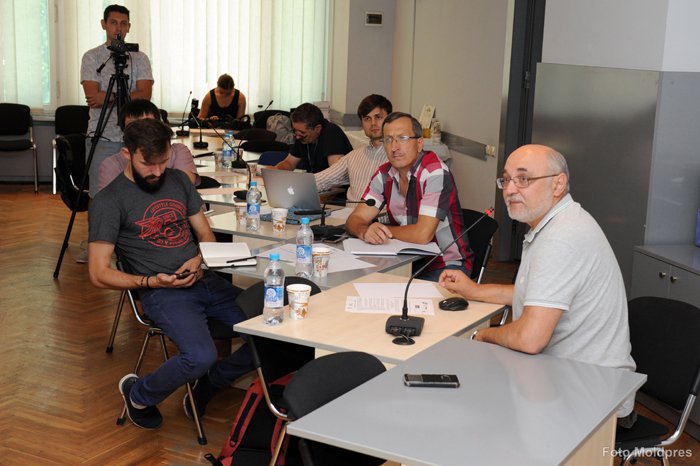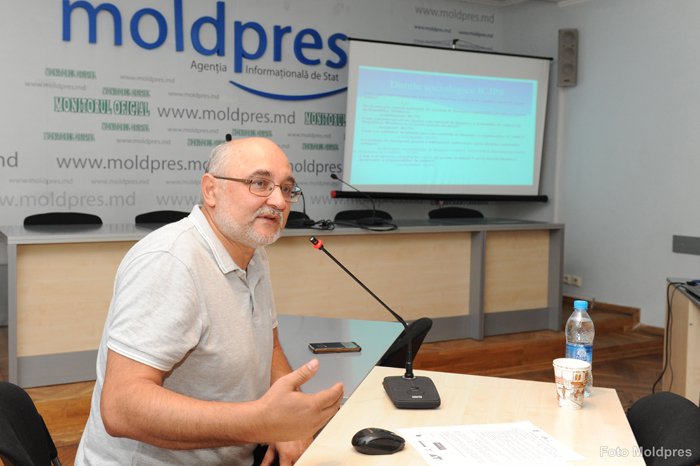Financing system of cultural organisations should be reformed in Moldova
19:46 | 14.08.2019 Category: Culture
Chisinau, 14 August /MOLDPRES/ – The financing system of cultural organisations needs to be reformed, as it does not meet the requirements of the market economy and does not face the internal and external challenges. The proposal has been made, on Wednesday, 14 August, during the first round of public discussions: Wednesday of cultural policies for Moldova, organised by the Centre for Cultural Policies with the support of Visegrad Fund.
The first discussion was about reforming the financing system of cultural organisations. Within it, the director of the Centre for Cultural Policies, Veaceslav Reabcinschi, mentioned that the institution has implemented project: the cultural policies for Moldova, which aims to develop a set of proposals for the efficiency of cultural policies in Moldova in the context of association with EU and adoption of development strategy Moldova 2030.
According to Reabcinschi, in March 2019, in Chisinau, it was held the International Conference: Results of the implementation of Culture Strategy 2020, attended by over 50 persons, experts in the field of culture from Moldova, as well as from Poland, Czechia, Slovakia and Hungary. At the conference, it was identified a number of priority issues that need to be solved in Moldova to streamline strategic activities. One of these issues is the reform of the financing system of cultural organisations, inherited from past, which does not face the contemporary challenges.
The current situation, specified Veaceslav Reabcinschi, is reflected in researches conducted in 2018 by the Institute of Legal, Political and Sociological Research among experts in the field of culture. Thus, it was found that 86.7 per cent of the respondents consider that the financing system is not adjusted to the requirements of the market economy and needs reform. The financing of the domain during 2011 – 2019 registered an increase from MDL 568.9 mln to MDL 922.9 mln (estimated). However, the share of culture in GDP has decreased from 0.9 per cent in 2011 to 0.5 per cent in 2019”.
”A negative trend, according to statistical data (until 2017), registered the infrastructure index (5.2 per cent), cultural consumption index (6.04 per cent) and cultural production index (23.8 per cent). All this caused the reduction of index of cultural life in respective period by 11.68 per cent. Taking into account the above, we have proposed development of a new financing system, which would include exclusion of political influence on financing of culture, creation of a public – private partnership in it, as well as modification of Fiscal Code regarding the facilities for investments in culture. Also, we consider that the field of culture must benefit from a financing of 01 per cent of GDP, as it is in the European countries, and in Belarus this index is 02 per cent”, said Veaceslav Reabcinschi.
Present at event, the Secretary of State of Culture, Andrei Chistol, thanked the organisers for the presented info. "It is an analysis that reflects certain trends and issues. I hope that we shall delve deeper into certain sectors regarding financing in the field of culture and see to what extent it corresponds to the interests of community. Also, we shall analise the management practiced by cultural organisations in the context of development strategy. We discuss these issues on certain platforms. We have already initiated the platform with the civil society in the field of financing cultural organisations. We have an open platform in the field of cinema. We intend to launch another platform soon for theatrical organisations. I hope that these analysis will also generate certain debates at the level of ministries, because we also need a synergy between different programmes of some ministries and how we could improve statistics in the field of culture, training in the field of culture and funding in it”, said Andrei Chistol.
The following public discussions will take place on August 21, in the conference room of AIS Moldpres and refer to possibilities of increasing the share of culture in GDP of Moldova and development of business in culture.
The Cultural Policies for Moldova project is implemented by the Center for Cultural Policies and the Institute of Legal, Political and Sociological Research with the support of the Visegrad Fund, in partnership with Budapest Observatory (Hungary), Adam Mickiewicz University (Poland), Creative Industry Forum (Slovakia) and the Institute umění – Divadelní ústav (Czechia).


